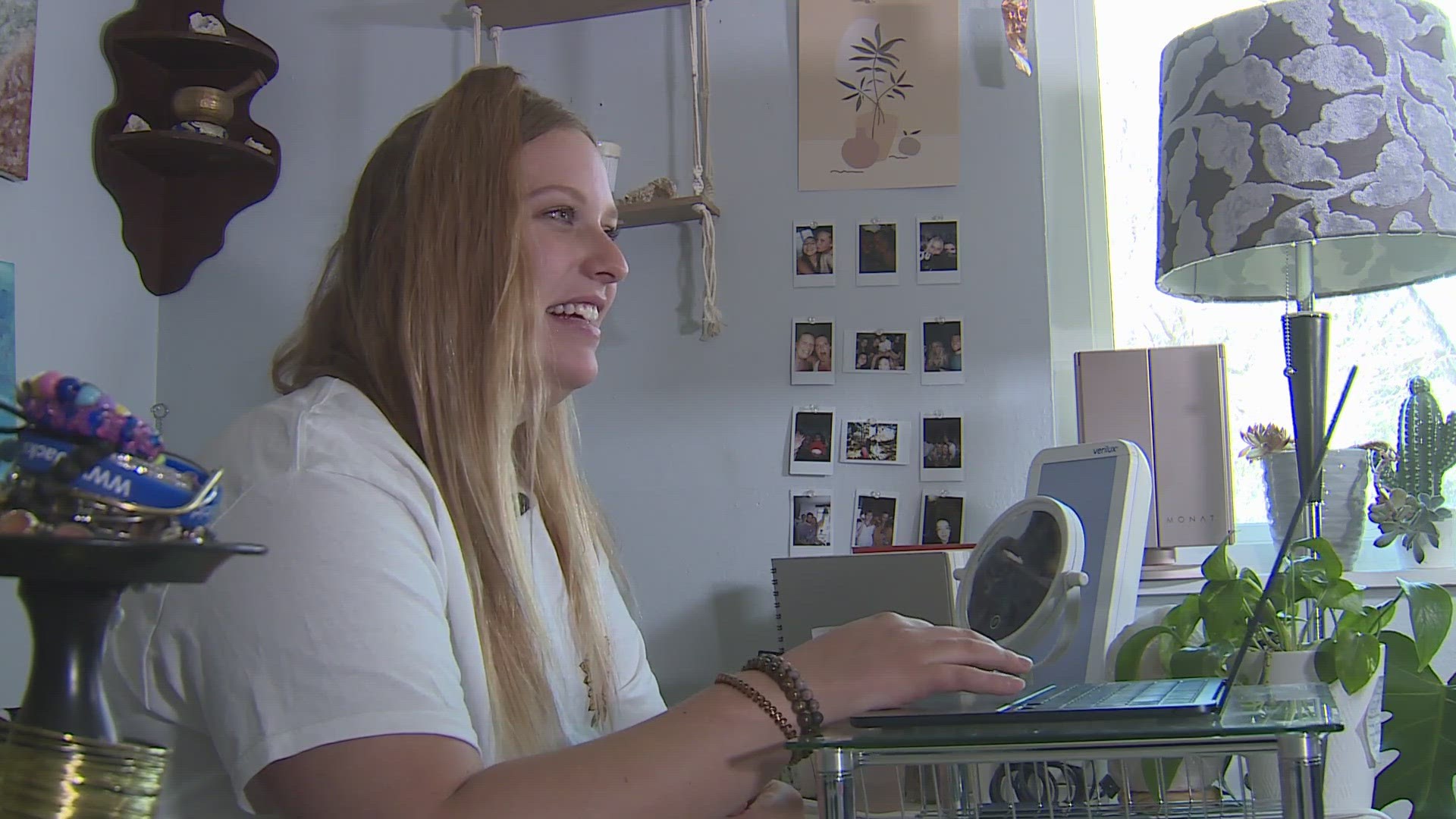DENVER — Maddie Freeman, a student at University of Colorado Boulder (CU), knows the about the impact of social media on kids' mental health and created a digital detox challenge that's now going viral and helping students around the world.
No Social (NoSo) is a campaign challenging young people to take a month-long break from social media for their mental health.
"It's like encouraging them to live in the real world rather than just being sucked into their phone for the whole month," Freeman said.
This particular campaign is years in the making and born out of tragedy after Freeman lost several friends to suicide.
"When is this going to stop," Freeman asked. "I just felt like this was going to be my life."
Feeling helpless, Freeman focused on what was literally in her hands, her phone, and turned it off.
Licensed therapist Dr. Sheryl Ziegler said a digital detox, just like the one Freeman came up with, has proven to benefit people's mental health.
"The more use that you have, the poorer that your mental health is - period, end of story," Ziegler said.
Ziegler pointed out a direct correlation between social media and anxiety and depression.
"They have feelings of sadness, depression, hopelessness," Ziegler said. "Because of the images that they're seeing, or the lifestyles that they're seeing and on top of that we see an increase in anxiety. So that excessive worry about 'am I good enough, am I beautiful enough, am I smart enough?'"
Ziegler said this disproportionately affects girls with some experts thinking there's more body consciousness impacting them.
"There's more toxic beauty culture messages for girls and so they absorb that more," Ziegler said.
But Ziegler said the good news is that steps like the NoSo challenge can help manage the effects.
"And we've gotten incredible results," Freeman said.
Some people who left reviews following their experience wrote that it was life changing and "super refreshing to not worry about what people were posting or worrying about what I was posting."
"It made me want to continue not using socials," another wrote.
"Students were e-mailing me like, 'This is changing my life and I'm connecting with people so authentically and my anxiety has vanished,'" Freeman said.
Freeman's campaign has become a global trend for thousands of people. But for her, it will always be a love letter to the friends she lost and a way to show them their lives mattered.
"All of the people that I lost, they didn't have to go without something to kind of show for it," Freeman said.
Freeman recognizes in today's world, social media is often used for work and school, so she also created a modified challenge for people to log off when it's not necessary. Even with the "half-in" option, people still reported seeing improvement with their mental health.
SUGGESTED VIDEOS: Latest from 9NEWS

